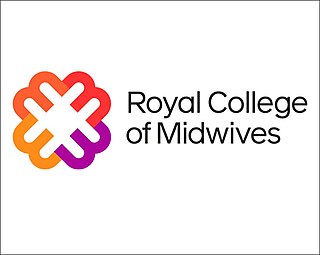
Physical therapy (PT), also known as physiotherapy, is a healthcare profession, as well as the care provided by physical therapists who promote, maintain, or restore health through patient education, physical intervention, disease prevention, and health promotion. Physical therapist is the term used for such professionals in the United States, and physiotherapist is the term used in many other countries.

The Scottish Trades Union Congress (STUC) is the national trade union centre in Scotland. With 40 affiliated unions as of 2020, the STUC represents over 540,000 trade unionists.
The Science Council is a UK organisation that was established by Royal Charter in 2003. The principal activity of The Science Council is the promotion of the advancement and dissemination of knowledge of and education in science pure and applied, for the public benefit. The Science Council is the Competent Authority with respect to the European Union directive 2005/36/EC. It is a membership organisation for learned and professional bodies across science and its applications and works with them to represent this sector to government and others. Together, the member organisations represent over 350,000 scientists. The Science Council provides a forum for discussion and exchange of views and works to foster collaboration between member organisations and the wider science, technology, engineering, mathematics and medical communities to enable inter-disciplinary contributions to science policy and the application of science.

The Royal College of Nursing (RCN) is a registered trade union in the United Kingdom for those in the profession of nursing. It was founded in 1916 as the College of Nursing, receiving its royal charter in 1928. Queen Elizabeth II was the patron until her death in 2022. The majority of members are registered nurses; however student nurses and healthcare assistants are also members. There is also a category of membership, at a reduced cost, for retired people.

The Australian Nursing and Midwifery Federation (ANMF) is the largest union in Australia, with 274,956 members in 2018. The union is run by nurses, midwives and assistants in nursing to advance the industrial, political and professional interests of its members.
Supervision is used in counselling, psychotherapy, and other mental health disciplines as well as many other professions engaged in working with people. Supervision may be applied as well to practitioners in somatic disciplines for their preparatory work for patients as well as collateral with patients. Supervision is a replacement instead of formal retrospective inspection, delivering evidence about the skills of the supervised practitioners.

The Society of Radiographers (SoR) is a professional body and trade union that represents more than 90 percent of the diagnostic and therapeutic radiographers in the United Kingdom. The College of Radiographers (CoR) is a charitable subsidiary of the Society, they are collectively known as the Society and College of Radiographers (SCoR).
The College of Physiotherapists of Ontario is a regulatory college which regulates physiotherapists, also known as physical therapists (PTs), in the province to protect and serve the public interest. Regulatory Colleges exist to protect the public. This means the college protects every patient's right to safe, competent and ethical care by supporting physiotherapists in maintaining the standards of practice of the profession, and by holding them accountable for their conduct and practice. The college is located in Toronto.
The New Zealand Society of Physiotherapists (NZSP) is a professional body of physiotherapists in New Zealand. Membership of the society is optional, but demonstrates that a particular practitioner upholds certain standards including adherence to a code of conduct. Individuals who meet certain criteria may indicate their membership by using the letters MNZSP or FNZSP after their names.
The Nigeria Society of Physiotherapy (NSP) is the national professional association representing Nigerian-trained physiotherapists as well as foreign-trained physiotherapists practicing in Nigeria. The society was inaugurated on 29 August 1959 at a meeting held the Physiotherapy Department of the University College Hospital, Ibadan by a group of Nigerian and British Physiotherapists.

Dame Mary Rosalind Paget, DBE, ARRC, was a noted British nurse, midwife and reformer. She was the first superintendent, later inspector general, of the Queen's Jubilee Institute for District Nursing, which was renamed as the Queen's Institute of District Nursing in 1928 and as the Queen's Nursing Institute in 1973.

Physical therapy education varies greatly from country to country. Worldwide, physical therapy training ranges from basic work site education in hospitals and outpatient clinics to professional doctoral degree and masters programs.

The Royal College of Midwives (RCM) is a British midwives organisation founded in 1881 by Louisa Hubbard and Zepherina Veitch. It has existed under its present name since 1947, and is the United Kingdom's only trade union or professional organisation for midwives and those that support them. Gill Walton is the current Chief Executive.
The Almeric Paget Massage Corps was a British physiotherapy service during the First World War.
World Physiotherapy is the international organisation for physiotherapy, representing more than 600,000 physiotherapists worldwide through its 128 member organisations. World Physiotherapy is the operating name of World Confederation for Physical Therapy (WCPT).
A professional order is an organization which, in a given territory, comprises all the members of the same profession, a profession which can generally be exercised in a liberal manner and which ensures a form of regulation of the profession in question.

Ruth Lorraine Jones is a British Labour Party politician who has served as the Member of Parliament (MP) for Newport West since winning the seat at a by-election in April 2019.
The Australian Physiotherapy Association was founded by Teepoo Hall in 1905. The APA has published the Journal of Physiotherapy since 1954.
Evelyn Paget Evans was an Australian administrator. She led several organisations associated with medicine and nursing. She argued against nurses being in a union and for giving them improved working conditions. She was secretary of the Australian Physiotherapy Association from 1917 until 1956.









